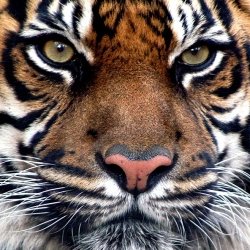
Carried out for conservation group WWF, a report highlights a "new wave" of organised wildlife crime by armed groups operating across borders. It says funds from trafficking are being used to finance civil conflicts.
The study comes as Malaysian officials captured about 20 tonnes of ivory in one of the biggest seizures ever made. According to Jim Leape, WWF International director general, the report underlines the fact that wildlife crime has escalated drastically over the past decade and now posed a greater threat than ever.
A tiger testicle, described by the WWF as of dubious authenticity, on sale in Bangkok
"This is about much more than wildlife," he told a news conference. "This crisis is threatening the very stability of governments. It has become a profound threat to national security." Rebel militia groups in Africa are cashing in on demand for elephants, tigers and rhinos to fund civil conflicts, said John Scanlon, secretary general of Cites, the organisation that governs the trade in endangered species.
"We saw earlier this year with rebel groups coming from Chad and Sudan going into northern Cameroon slaughtering 450 elephants, taking the ivory for the purpose of selling it in order to buy arms for local conflicts" he said.
He added that there had been similar issues in the Democratic Republic of Congo. This view was echoed by Christian Glass, spokesman for the German Federal Ministry for Economic Cooperation and Development.
